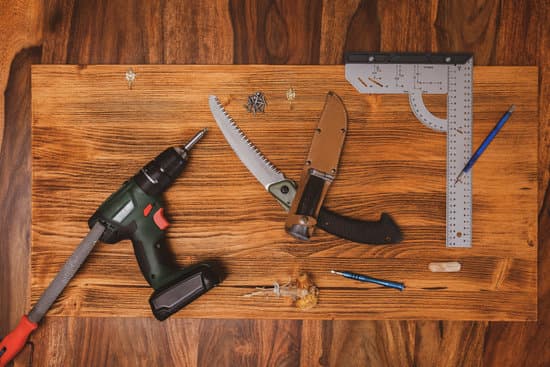When considering home improvement projects, many homeowners find themselves wondering, “Do I pay income tax on a home improvement loan?” Home improvement loans are financial products designed to help individuals fund renovations, repairs, or upgrades to their homes. These loans can be crucial for those who do not have the cash readily available to cover the costs of such projects.
There are several types of home improvement loans available, including personal loans, home equity loans, and home equity lines of credit. Each option has its own set of advantages and considerations based on factors like interest rates, repayment terms, and potential tax benefits. Understanding the differences between these loan types can help homeowners make informed decisions about which one best suits their needs.
In this article, we will explore the tax implications of taking out a home improvement loan and answer the important question: do you pay income tax on funds used for home improvements? By delving into IRS guidelines and reporting requirements, we aim to provide clarity on how these loans may impact your taxes. Additionally, we will discuss potential tax benefits that may be available to homeowners who invest in improving their properties.
Types of Home Improvement Loans
When it comes to financing home improvement projects, there are several options available to homeowners. Understanding the different types of home improvement loans can help you make an informed decision based on your financial situation and needs. Some common options include personal loans, home equity loans, and home equity lines of credit (HELOC).
Personal Loans
Personal loans are unsecured loans that can be used for a variety of purposes, including home improvements. These loans typically have fixed interest rates and repayment terms, making it easier to budget for monthly payments. However, personal loans may have higher interest rates compared to secured loans like home equity loans or HELOCs.
Home Equity Loans
Home equity loans allow homeowners to borrow against the equity in their property. This type of loan is secured by the value of your home and often has lower interest rates than personal loans. Home equity loans provide a lump sum payment that can be used for large-scale home improvement projects. The interest paid on a home equity loan may be tax-deductible in certain situations, which can provide additional savings for homeowners.
Home Equity Lines of Credit (HELOC)
A HELOC is a revolving line of credit that allows homeowners to borrow against the equity in their property as needed. Similar to a credit card, you can borrow up to a certain limit and only pay interest on the amount withdrawn. HELOCs offer flexibility in accessing funds for ongoing home improvement projects or unexpected expenses. Additionally, the interest paid on a HELOC may be tax-deductible under specific conditions, making it an attractive financing option for many homeowners.
Each type of home improvement loan has its own set of benefits and considerations. It’s essential to evaluate your financial goals and circumstances before deciding which option is best suited for your needs. With careful planning and research, you can choose the right financing solution to make your home improvement dreams a reality without overburdening yourself financially.
Tax Deductibility of Home Improvement Loans
When considering taking out a home improvement loan, one important factor to consider is the tax deductibility of the loan. Understanding which types of home improvement loans may be tax-deductible and the circumstances under which they qualify for deductions can have a significant impact on your finances. In general, interest on loans used for home improvements may be tax-deductible, but it depends on the specific type of loan and how the funds are used.
Home Equity Loans and Home Equity Lines of Credit
One common type of loan that homeowners use for renovations or repairs is a home equity loan or a home equity line of credit (HELOC). The interest paid on these loans may be tax-deductible if the funds are used to make substantial improvements to your primary residence.
However, if the money is used for other purposes such as buying a car or paying off credit card debt, the interest may not be deductible. It’s essential to keep detailed records of how you use the borrowed funds to determine your eligibility for tax deductions.
Personal Loans
Unlike home equity loans, personal loans are typically not tax-deductible when used for home improvements. Since personal loans are considered unsecured debt and do not involve using your home as collateral, the interest paid on these loans is generally not eligible for a tax deduction.
Before taking out a personal loan for home improvements, it’s essential to consider whether potential tax benefits outweigh other financing options available to you. Consulting with a tax professional can help you understand how different types of loans may impact your taxes in the long run.
Do I Pay Income Tax on a Home Improvement Loan
When it comes to taking out a home improvement loan, one of the common concerns that borrowers have is whether or not they will be required to pay income tax on the funds they receive. The good news is that in most cases, you do not have to pay income tax on a home improvement loan.
This is because the money borrowed is typically used to make positive changes to your primary residence, which increases its value and does not count as taxable income.
To provide further clarity on whether or not you need to pay income tax on a home improvement loan, here are some key points to consider:
- Home improvement loans are considered a type of debt rather than income, so they are generally not taxable.
- However, if you use the funds from a home improvement loan for something other than improving your primary residence – such as using it for personal expenses or investing in another property – then you may be subject to taxation.
- Additionally, interest paid on a home equity loan or home equity line of credit (HELOC) may be tax-deductible under certain circumstances, making them even more advantageous for homeowners.
IRS Guidelines
When it comes to the question, “Do I pay income tax on a home improvement loan?” the answer is generally no. The Internal Revenue Service (IRS) does not consider funds obtained through a home improvement loan as taxable income. This is because the money borrowed is meant for improving your primary residence and increasing its value.
However, if you use the funds from a home improvement loan for other purposes besides renovating your home, such as paying off personal debt or financing a vacation, then those amounts may be subject to taxation. It’s important to keep detailed records of how you allocate the funds from the loan to ensure you are in compliance with IRS guidelines.
Additionally, interest payments on a home improvement loan are typically tax-deductible if certain conditions are met. For example, if you use a home equity loan or line of credit for qualified home improvements, the interest you pay on that loan may be deductible. Consulting with a tax professional can help you navigate these rules and maximize any potential tax benefits related to your home improvement project.
| IRS Guidelines | Important Information |
|---|---|
| Funds from a home improvement loan are generally not considered taxable income by the IRS. | Keep detailed records of how funds from the loan are used. |
| Interest payments on a home equity loan for qualified renovations may be tax-deductible. | Consulting with a tax professional can help maximize potential tax benefits. |
Reporting Requirements
When tax season comes around, individuals who have taken out a home improvement loan may be wondering what documentation they need to gather in order to properly report this on their taxes. While the IRS does not tax the borrowed funds from a home improvement loan, it is still important to keep records of the loan for reporting purposes.
One key document that you should have on hand is a copy of the agreement or loan contract for your home improvement loan. This document will outline the terms of the loan, including the amount borrowed, interest rate, repayment schedule, and any other relevant details. Having this information readily available will help ensure that you accurately report the loan on your tax return.
Additionally, if you used the funds from your home improvement loan for specific upgrades or renovations to your property that may be eligible for tax deductions or credits, it is important to keep detailed receipts and invoices. This documentation can support any potential claims for tax benefits related to your home improvements.
Finally, depending on your individual circumstances and the type of home improvement loan you took out, you may also need to provide additional financial records when filing your taxes. Consult with a tax professional to determine any specific requirements based on your situation and ensure that you are compliant with all reporting guidelines.
| Documentation | Importance |
|---|---|
| Loan Agreement/Contract | Outlines terms of the loan for accurate reporting |
| Receipts & Invoices for Home Improvements | Supports potential tax deductions or credits |
| Additional Financial Records | Vary depending on individual circumstances and type of loan |
Potential Tax Benefits of Home Improvements
When it comes to home improvement projects, not only can they enhance the comfort and functionality of your living space, but they may also come with potential tax benefits. Understanding these benefits can help you maximize your savings and make informed decisions about your home renovation plans. Here are some common tax benefits and deductions you may be eligible for after completing home improvement projects:
- Energy Efficiency Upgrades: Making energy-efficient upgrades to your home, such as installing solar panels, energy-efficient windows, or upgrading your HVAC system, may qualify you for tax credits. The Residential Energy Efficient Property Credit allows homeowners to claim a credit for up to 26% of the cost of qualifying energy improvements.
- Medical Necessity Renovations: If you need to make renovations to your home for medical reasons, such as adding wheelchair ramps or lowering countertops for accessibility, these expenses may be tax-deductible as a medical expense. Keep in mind that these expenses must exceed a certain percentage of your adjusted gross income before they become deductible.
- Home Office Deduction: If you use a portion of your home regularly and exclusively for business purposes, you may be eligible for a home office deduction. This deduction allows you to deduct a percentage of expenses related to maintaining and improving that specific area of your home. Be sure to keep detailed records of expenses related to the home office for tax purposes.
Taking advantage of these potential tax benefits can help offset the cost of your home improvement projects and save you money in the long run. It’s essential to keep thorough records of all expenses related to the improvements and consult with a tax professional to ensure you are maximizing your eligibility for deductions and credits.
Remember that tax laws can be complex and subject to change, so seeking guidance from a qualified professional will provide you with peace of mind knowing that you are compliant with IRS regulations while taking full advantage of any available tax benefits related to your home improvements. By staying informed about potential deductions and leveraging available credits, you can make the most out of your investment in improving your living space.
Consult a Tax Professional
When it comes to home improvement loans, the question of whether income tax needs to be paid on the funds used for renovations is a common one. The good news is that in most cases, you do not have to pay income tax on a home improvement loan.
This is because the money borrowed is typically not considered income since it is a loan that must be repaid. However, it is essential to keep in mind that there may be exceptions or specific circumstances where taxability could come into play.
The Internal Revenue Service (IRS) has guidelines in place regarding the taxation of home improvement loans. While most loans used for home improvements are not taxable, there may be certain situations where they could be subject to taxation. It is crucial to understand these rules and any exceptions that may apply. Consulting with a tax professional can help ensure that you are compliant with tax laws and regulations related to home improvement loans.
In conclusion, before embarking on a home improvement project financed by a loan, it is advisable to consult with a tax professional regarding any potential tax implications. By seeking advice from an expert in the field, you can make informed decisions about your finances and ensure that you are following all necessary tax laws and regulations. Remember that staying proactive and well-informed will help you navigate the complexities of taxes when it comes to home improvement loans.
Frequently Asked Questions
Is a Home Improvement Loan Taxable?
A home improvement loan is not taxable because it is considered a form of debt rather than income. This means that the funds you receive from the loan are not subject to income tax.
Is Interest on Home Improvements Tax-Deductible?
Interest on home improvements may be tax-deductible under certain circumstances. If the home improvement is considered a capital improvement that adds value to your home, the interest paid on the loan used for the improvement may be eligible for a tax deduction.
Are Home Loans Taxed?
Home loans themselves are not taxed in the traditional sense. However, there are certain taxes associated with home ownership, such as property taxes and mortgage interest deductions. These taxes can impact the overall cost of homeownership but do not directly tax the loan amount itself.

I’m thrilled to have you here as a part of the Remodeling Top community. This is where my journey as an architect and remodeling enthusiast intersects with your passion for transforming houses into dream homes.





